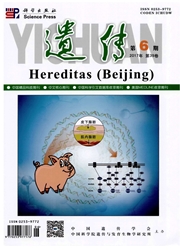

 中文摘要:
中文摘要:
质膜水通道蛋白即质膜内在蛋白(plasma membrane intrinsic proteins,PIPs),属于通道蛋白,定位在质膜上,是植物体内水分子、CO_2及其他一些小分子溶质跨细胞膜运输的通道。PIPs对运输基质具有高度选择性,在维持植物细胞的水分平衡过程中发挥重要作用。PIPs的表达、活性与定位不但受转录水平和翻译后水平的调控,而且受外界环境影响。研究表明在非生物胁迫下,PIPs表达模式和定位会发生改变。本文重点阐述了PIPs转运的分子机制、转录水平及翻译后水平的调控机制以及PIPs对非生物胁迫的响应机制,分析了目前关于PIPs的研究动态和值得探究的研究方向,以期帮助相关领域的科研人员对PIPs的研究进展有更深入地了解。
 英文摘要:
英文摘要:
Plasma membrane intrinsic proteins(PIPs) are plant channel proteins located on the plasma membrane.PIPs transfer water, CO2 and small uncharged solutes through the plasma membrane. PIPs have high selectivity to substrates, suggestive of a central role in maintaining cellular water balance. The expression, activity and localization of PIPs are regulated at the transcriptional and post-translational levels, and also affected by environmental factors.Numerous studies indicate that the expression patterns and localizations of PIPs can change in response to abiotic stresses. In this review, we summarize the mechanisms of PIP trafficking, transcriptional and post-translational regulations, and abiotic stress responses. Moreover, we also discuss the current research trends and future directions on PIPs.
 同期刊论文项目
同期刊论文项目
 同项目期刊论文
同项目期刊论文
 期刊信息
期刊信息
